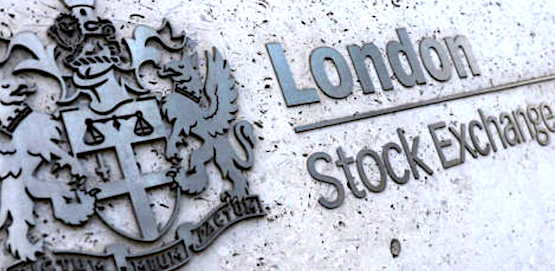UK corporate reaction to the Covid-19 pandemic caused unprecedented cuts in company dividends in the second quarter of 2020, according to the latest dividend monitor from financial administrators Link Group.
The UK’s second-quarter dividend total fell 57.2% to £16.1 billion, almost £22 billion less than in Q2 2019 on a headline basis.
Excluding special dividends, which were exceptionally high this time last year, the decline was still 50.2%, from £32.1 billion to £16 billion.
This was the lowest second-quarter total since 2010, and the decline itself is by far the biggest ever recorded.
Discretionary special dividends have all but disappeared.
Link Group said its best-case scenario for full-year 2020 now sees dividends falling 39% to £60.5 billion on an underlying basis, down from £98.5 billion last year.
One-off special dividends were exceptionally high in 2019 and will be exceptionally low this year, so the decline in the headline figure will be 45% on a best-case basis, dropping from £110.5 billion to £61.6 billion.
Link’s worst case sees a fall of 43% to £56.3 billion on an underlying basis, or 49% — a whopping £53.8 billion — on a headline basis to £56.7 billion.
The report said 176 companies cancelled their second-quarter dividends altogether and another 30 cut them.
Taken together, these made up three quarters of the companies that usually pay in the second quarter. Only 61 firms increased their dividends.
In the aftermath of the global financial crisis, which used to be the benchmark for “how bad things can get,” the worst quarter (Q1 2009) saw two fifths of companies cut their dividends, and only half of these one fifth) cancelling them altogether.
“Of the £16.4bn of cuts in underlying (i.e. ex special dividends) in the second quarter, half of the impact came from the financial sector, after the Bank of England commanded the banks to cancel all shareholder payouts for 2020 and leant heavily on insurance companies to follow suit,” said the report.
“Some insurers resisted, notably Legal & General and Admiral (though the latter canned its planned special dividend), but most bowed to pressure from the regulator.
“The biggest news came when Shell took a knife to its world-beating payout, cutting it by two thirds, the first reduction it has made since the Second World War.
“Collectively, oil-sector cuts totalled £2.2bn in the second quarter.
“Almost as much, £2.0bn, came from the diverse industrials sector which includes aviation, construction, engineering, and support services. Nine in ten companies cancelled their dividends altogether.
“£1.7bn fell away from consumer discretionary sectors that include media, housebuilding, travel, leisure, and retail – the last four of these especially badly hit by the lockdown.
“Only four companies out of 55 did not cancel their Q2 payout, most of them media groups such as Pearson.
“Among consumer basics companies that include food retail, food, drink and tobacco, and personal items, dividend cuts were less severe than elsewhere. These sectors are classic defensives, whose earnings are relatively sheltered during a crisis. More than half the companies in the sector actually increased their payouts year-on-year.
“Top 100 dividends dropped by less than the mid-caps, falling 45% year-on-year compared to a precipitous 76% for the mid 250 on an underlying basis.
“Overall, three fifths of top 100 companies cut or cancelled their payouts in Q2, compared to almost four fifths of mid 250s.”
Susan Ring, CEO Corporate Markets of Link Group, said: “The second quarter was truly a record breaker.
“Not by a whisker, nor by a nose, but by a mile.
“The whole of 2020 will, without doubt, see the biggest hit to dividends in generations.
“As the lockdown wore on and restrictions became ever tighter, the economic damage spread to more and more companies.
“At the same time, it became clearer which companies were more resilient, and we were able to assess more accurately how deep cuts would go for those companies not simply cancelling payouts altogether.
“The gap between our best- and worst-case scenario is now just four percentage points, far narrower than our first estimate made in early April in the midst of the turmoil.
“The cuts have been made to protect balance sheets in the face of horrendous disruption to trading and to the economy.
“But to some extent, companies in 2020 are also ensuring they try to make good of a crisis.
“Dividend cover, a measure of affordability that relates payouts to profits, has been far lower in the UK than the global average.
“2020 has provided an opportunity for many companies to reset their dividends at a lower, more sustainable level from which they can again start to rebuild. In the short term this is painful for investors, but in the long run it helps create healthier companies.
“This resetting, together with the economic legacy of the pandemic, means it could take until 2026 for dividends to return to their 2019 level.”
